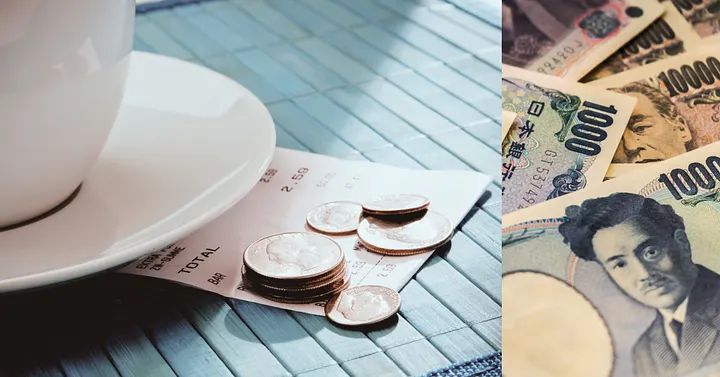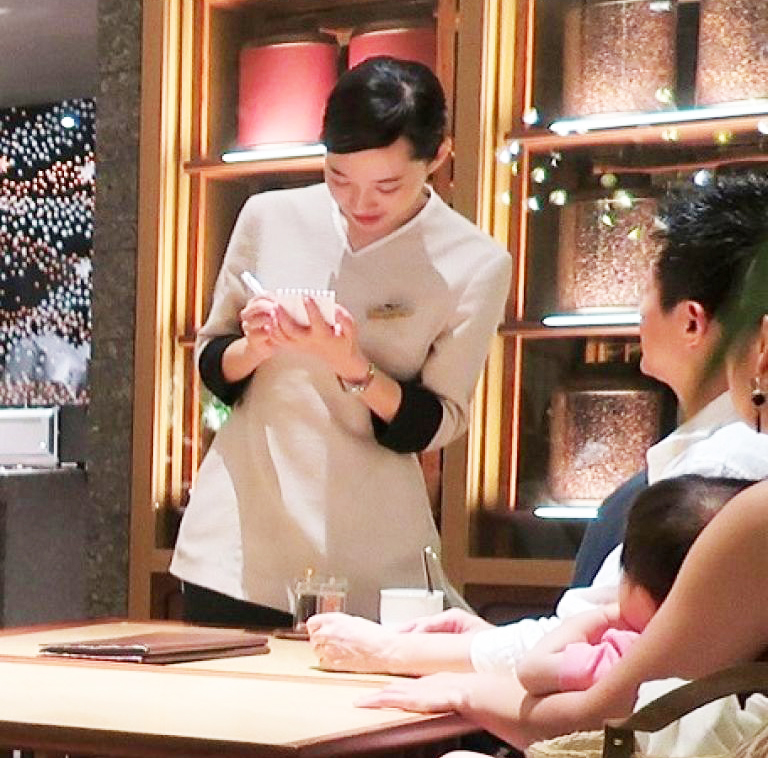No Tipping in Japan:
If you’re from the US, Canada or parts of Europe, for example, you may very well assume that good service warrants a monetary reward. I used to assume that, too. In Japan, service is included. It’s expected. Not providing the expected standard of service in Japan would be shameful for a business, whether that’s a restaurant or retail store. A Japanese person would never think of leaving a tip in a restaurant. It’s a totally foreign idea. And yet some visitors to Japan not only assume they need to tip, they try to tip even when already advised not to.
By societal norms alone, that worker would have to refuse your tip. And in a society where confrontation is regularly avoided and the word “no” is not often used, your tip attempt actually places that worker in a rather awkward and uncomfortable position. If you leave a cash tip on the table, the staff will have to chase you down to give it back. If you want to do a good thing for your restaurant server, write a nice Google review and mention them by name. Beyond that, there’s not only no need to reward their service, there’s no way to. Tips are simply not good etiquette in Japan.
Why is tipping common outside Japan?Probably because servers can legally be paid less than minimum wage in the US, and so the price on the menu has an unwritten, hidden cost of tipping after the meal. 15% used to be standard; now it’s more like 20% “minimum,” with 25%-30% not uncommon. And tipping has spread to coffee shops, fast food restaurants and seemingly everywhere service is provided in the US. In Japan, the concept of “Omotenashi” is deeply ingrained in the culture and defines the exceptional level of service you’ll experience throughout the country. Omotenashi is a philosophy of selfless hospitality, where service providers anticipate the customer’s needs and deliver a memorable experience without expecting anything in return. Omotenashi is seen in hotels, ryokan (inns), stores, restaurants, street food stalls and elsewhere. It’s often about creating a warm, welcoming environment that makes you feel valued and respected. As a visitor, you’ll likely notice that the attention to detail, genuine care, and thoughtfulness in every interaction are unparalleled. The absence of tipping is a reflection of the cultural emphasis on pride in one’s work and the commitment to providing every guest with the best possible experience.
The one place you should definitely NOT tip in is restaurants. The majority of waiters and other restaurant staff would see tipping as not only unnecessary, but quite insulting! We know it may be difficult, especially when thinking about what you would do back home, but tipping is seen as rude in restaurants and should be avoided. If you want to show your respect, simply say thank you – or arigato gozaimasu! (Thank you very much).
Tipping Teasers
The businessman was rather put off when a bum approached him with a request for five dollars to buy a cup of coffee. “You can buy a cup of coffee for two bucks,” he responded tartly. “You are right, conceded the bum cheerfully. “But I like to leave a big tip.”
Two opposing candidates for county office happened to be sitting next to each other at a local diner the first candidate said, “I always tip the waitress’s real well and then ask them to vote for me,” he said.
Candidate number two: “I always tip them a nickel and ask them to vote for you.”
Banks charge a “service fee” to give you your own money back at an ATM.
Coke machines will soon expect a tip.
Visiting my daughter I answered the door for the paper boy, who was collecting. I paid him and said, “I don’t know what you usually get for a tip, but here is a dime.”
With a pained look on his face, the boy replied, “are you going to live here?”
September 23rd Birthdays
1961 – Elizabeth Peña, 1967 – Lisa Ray McCoy, 1984 – Anneliese Van Pol, 1957 – Rosalind Chao
1936 – Jim Henson, 1920 – Mickey Rooney, 1959 – Jason Alexander 1931 – Anthony Newley




